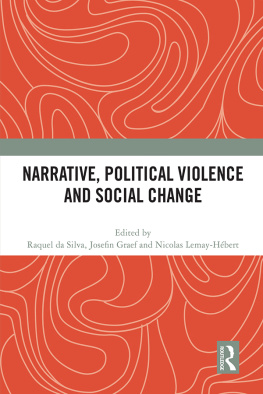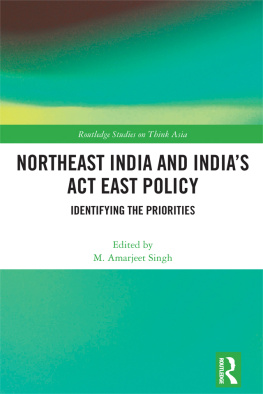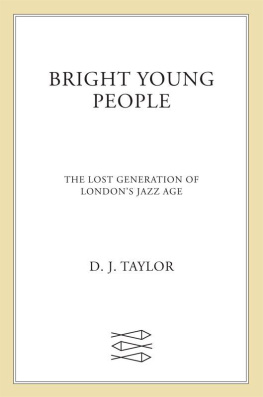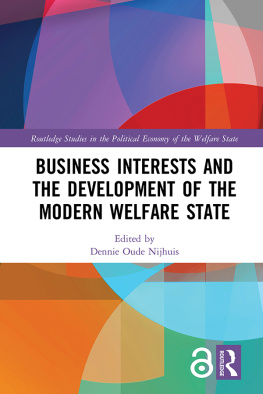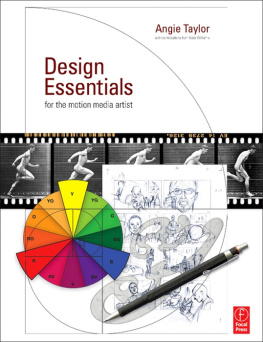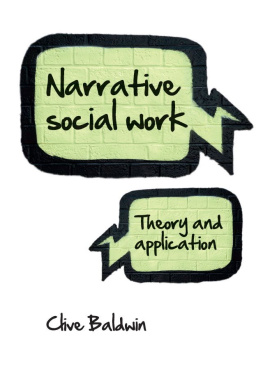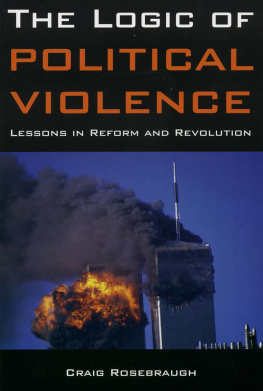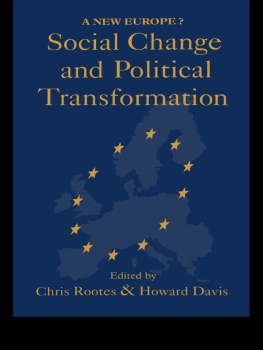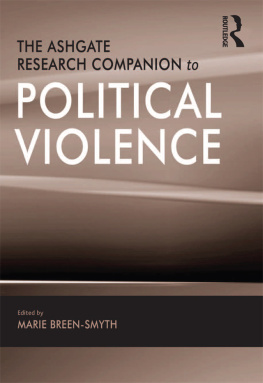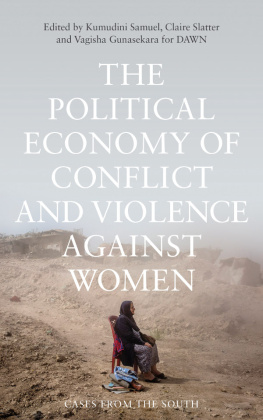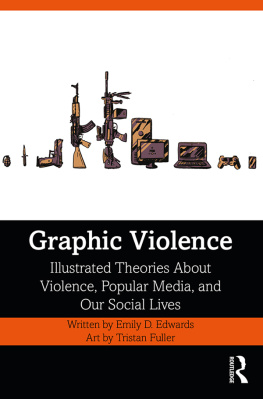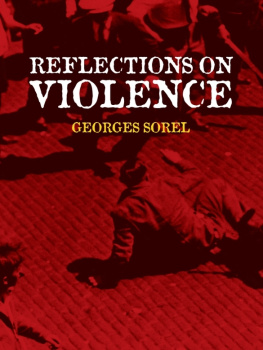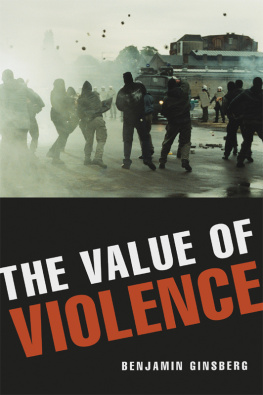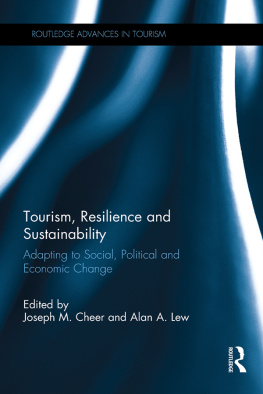Narrative, Political Violence and Social Change
Narrative, Political Violence and Social Change is a call for engaging actively and critically with the ontological, epistemological, and methodological implications of narrative in the study of political violence and terrorism.
Building on a basic framework of three modes of narrative as lens, as data, and as tool the chapters in this book demonstrate how the study of political violence and terrorism benefits from narrative inquiry as an interdisciplinary endeavour, in particular as regards diverging perceptions of social reality, the meanings of belonging, and the human drive for change. They showcase the substantial advances that scholars have made in this field to date and identify promising avenues for further research.
The chapters in this book were originally published as a special issue of the journal Studies in Conflict & Terrorism.
Raquel da Silva is Assistant Professor of International Relations at the School of Economics, University of Coimbra, Portugal. She has published numerous articles and a monograph entitled Narratives of Political Violence: Life Stories of Former Militants (2019).
Josefin Graef is an independent scholar whose work focuses on the uses of narrative for understanding contemporary European politics and societies. Her first monograph Imagining Far-right Terrorism: Violence, Immigration, and the Nation State in Contemporary Western Europe is forthcoming with Routledge.
Nicolas Lemay-Hbert is Senior Lecturer, Department of International Relations, Coral Bell School of Asia Pacific Affairs, Australian National University. His latest books are The Law and Practice of Peacekeeping (coauthored with R. Freedman and S. Wills; 2021) and Normalization in World Politics (coauthored with G. Visoka; 2022).
Narrative, Political Violence and Social Change
Edited by
Raquel da Silva, Josefin Graef and Nicolas Lemay-Hbert
First published 2022
by Routledge
2 Park Square, Milton Park, Abingdon, Oxon OX14 4RN
and by Routledge
605 Third Avenue, New York, NY 10158
Routledge is an imprint of the Taylor & Francis Group, an informa business
2022 Taylor & Francis
All rights reserved. No part of this book may be reprinted or reproduced or utilised in any form or by any electronic, mechanical, or other means, now known or hereafter invented, including photocopying and recording, or in any information storage or retrieval system, without permission in writing from the publishers.
Trademark notice: Product or corporate names may be trademarks or registered trademarks, and are used only for identification and explanation without intent to infringe.
British Library Cataloguing in Publication Data
A catalogue record for this book is available from the British Library
ISBN: 978-1-032-13870-1 (hbk)
ISBN: 978-1-032-13872-5 (pbk)
ISBN: 978-1-003-23121-9 (ebk)
DOI: 10.4324/9781003231219
Typeset in Minion Pro
by Newgen Publishing UK
Publishers Note
The publisher accepts responsibility for any inconsistencies that may have arisen during the conversion of this book from journal articles to book chapters, namely the inclusion of journal terminology.
Disclaimer
Every effort has been made to contact copyright holders for their permission to reprint material in this book. The publishers would be grateful to hear from any copyright holder who is not here acknowledged and will undertake to rectify any errors or omissions in future editions of this book.
Contents
Josefin Graef, Raquel da Silva and Nicolas Lemay-Hbert
PART 1
Narrative approaches to deradicalisation and counter-terrorism
Raquel da Silva, Pablo Fernndez-Navarro, Miguel M. Gonalves, Catarina Rosa and Joana Silva
Kurt Braddock and John F. Morrison
PART 2
Narrative criminology and right-wing violence
Sarah Colvin and Daniela Pisoiu
Josefin Graef
PART 3
Re-considering violent conflicts
Ioannis Tellidis
Irene Gantxegi, Galo Bilbao and Angela Bermudez
The chapters in this book were originally published in the journal Studies in Conflict & Terrorism, volume 43, issue 6 (2020). When citing this material, please use the original page numbering for each article, as follows:
Narrative, Political Violence, and Social Change
Josefin Graef, Raquel da Silva, and Nicolas Lemay-Hebert
Studies in Conflict & Terrorism, volume 43, issue 6 (2020), pp. 431443
Disengagement from Political Violence and Deradicalization: A Narrative-Dialogical Perspective
Raquel da Silva, Pablo Fernndez-Navarro, Miguel M. Gonalves, Catarina Rosa, and Joana Silva
Studies in Conflict & Terrorism, volume 43, issue 6 (2020), pp. 444467
Cultivating Trust and Perceptions of Source Credibility in Online Counternarratives Intended to Reduce Support for Terrorism
Kurt Braddock and John F. Morrison
Studies in Conflict & Terrorism, volume 43, issue 6 (2020), pp. 468492
When Being Bad is Good? Bringing Neutralization Theory to Subcultural Narratives of Right-Wing Violence
Sarah Colvin and Daniela Pisoiu
Studies in Conflict & Terrorism, volume 43, issue 6 (2020), pp. 493508
Telling the Story of the National Socialist Underground (NSU): A Narrative Media Analysis
Josefin Graef
Studies in Conflict & Terrorism, volume 43, issue 6 (2020), pp. 509528
Peacebuilding Beyond Terrorism? Revisiting the Narratives of the Basque Conflict
Ioannis Tellidis
Studies in Conflict & Terrorism, volume 43, issue 6 (2020), pp. 529547
Recognizing Victims of Political Violence: Basque Literary Narratives as an Ethical Tool
Irene G. Madina, Galo Bilbao, and Angela Bermudez
Studies in Conflict & Terrorism, volume 43, issue 6 (2020), pp. 548564
For any permission-related enquiries please visit:
www.tandfonline.com/page/help/permissions
Angela Bermudez, Centre for Applied Ethics, University of Deusto, Bilbao (Bizkaia), Spain.
Galo Bilbao, Centre for Applied Ethics, University of Deusto, Bilbao (Bizkaia), Spain.
Kurt Braddock, School of Communication, American University, Washington, DC, USA.
Sarah Colvin, Department of German and Dutch, University of Cambridge, Cambridge, UK.
Raquel da Silva, University of Coimbra, School of Economics, Portugal.
Pablo Fernndez-Navarro, UNED MotrilNational University of Distance Learning, Motril, Granada, Spain.
Miguel M. Gonalves, CIPsiPsychology Research Center, School of Psychology, University of Minho, Braga, Portugal.
Josefin Graef, independent scholar.
Irene Gantxegi, Centre for Applied Ethics, University of Deusto, Bilbao (Bizkaia), Spain.


